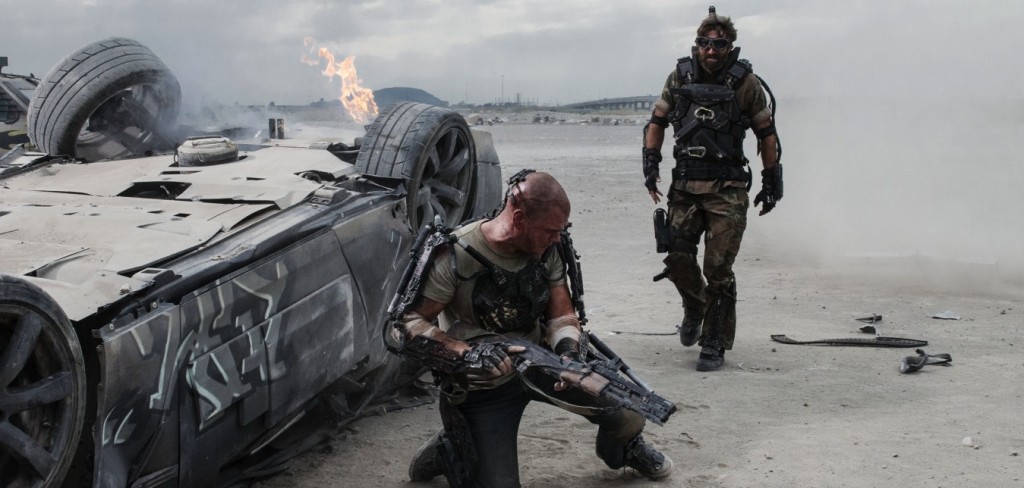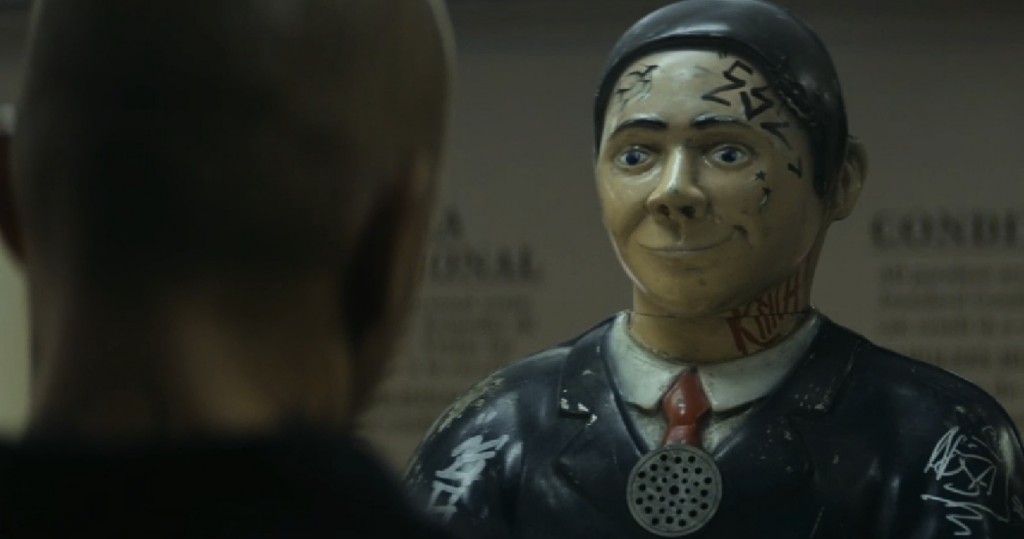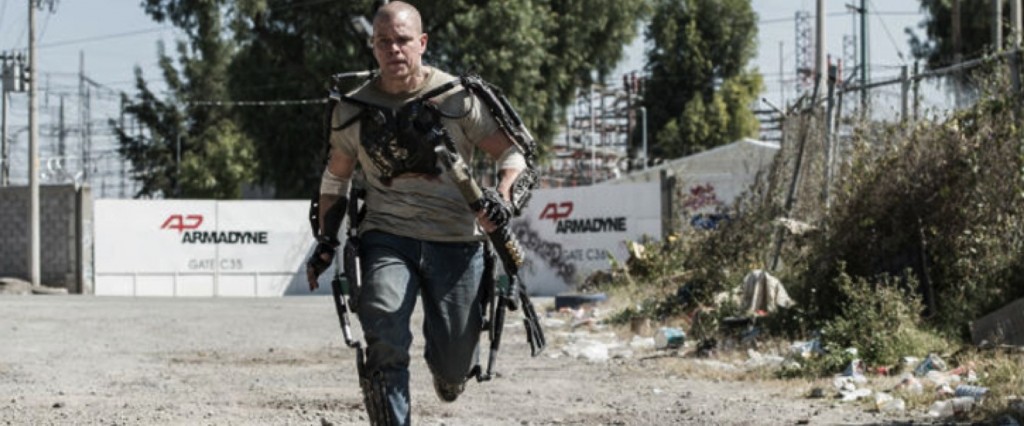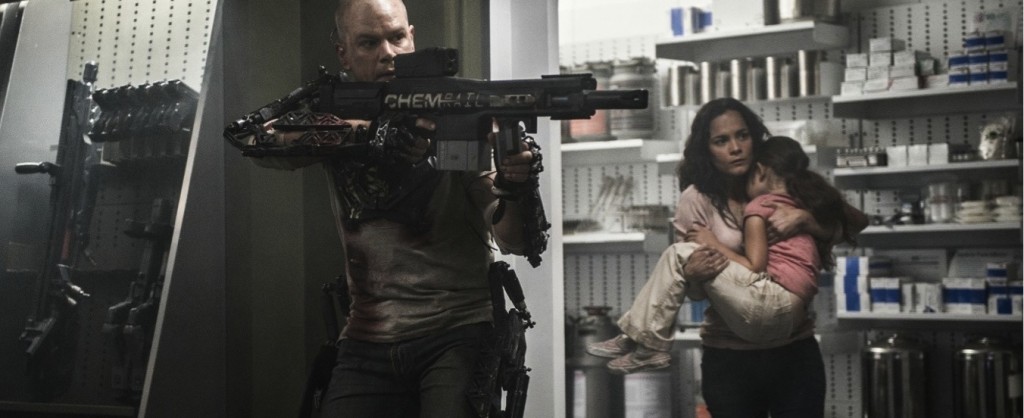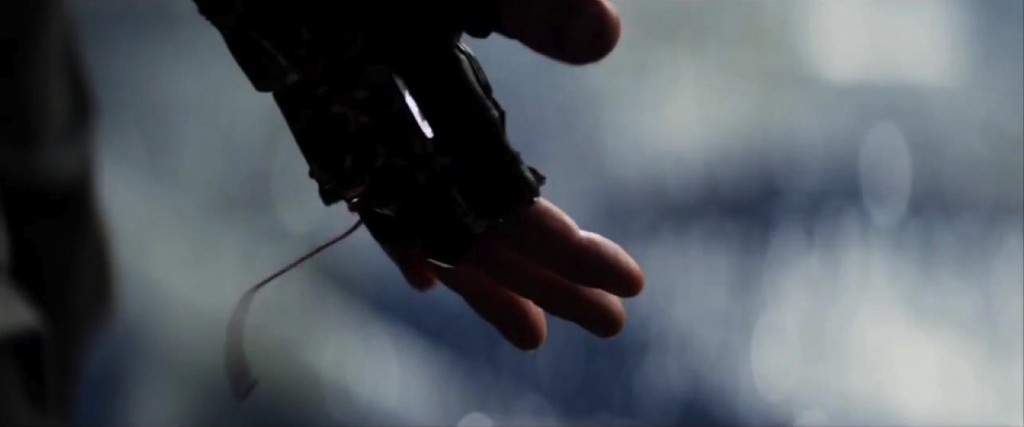Our Ticket to ELYSIUM
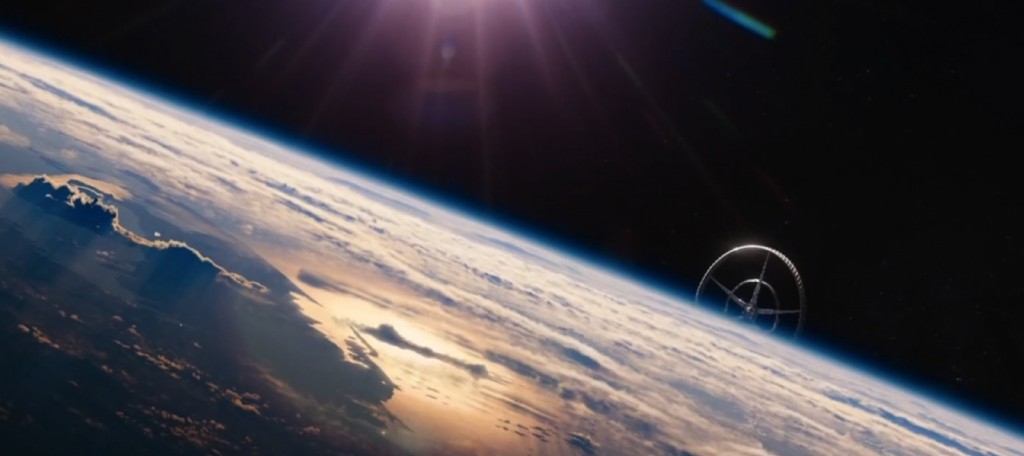 “But our citizenship is in heaven, and from it we await a Savior…”
“But our citizenship is in heaven, and from it we await a Savior…”
– Philippians 3:20
My first thought sitting in the glow of credits following Elysium’s gripping climax? Well, that’ll preach.
Neill Blomkamp’s latest science fiction entry may not be as curious or fresh as 2009’s District 9, but it offers intriguing themes to explore that aren’t as black and white as some have voiced. From the faith of a child, to the self-serving human nature in the adult hearts of “haves” and “have nots”, Elysium looks at a broken world system and hints at something ultimate, iconic and selfless as the answer.
“Everyone did what was right in his own eyes…” – Judges 17 & 21
This scriptural refrain categorizes a time when the people of Israel had no king: everyone ruled themselves. When things got out of hand – when people were oppressed – God would raise up judges who would set things right. These weren’t always saints, but rather flawed men used of God to put things back as they ought to be. In some ways the judges would foreshadow and serve as a prophetic analogue for the true Messiah, less than perfect but teasing at the ultimate.
Elysium’s science fiction parable serves up a protagonist with much the same function, as Matt Damon’s character Max is used – thanks to a fortunate chain of events – as such an instrument for change and salvation. Raised on the third world that our entire world has become, Max Da Costa wants to get to Elysium: the paradise satellite in the sky where the elite live, breathe clean air, eat the finest foods, and enjoy perfect health.
It’s a nice juxtaposition that, after being beaten unnecessarily at the beginning of the film by enforcer robots, a world-weary Max goes to the factory where he helps build the same droids. It’s an artistic way of showing that he’s constructing the very system that’s oppressing him, equipping the very hands that hurt him (and others). Moreover, the oppressors are faceless drones, lacking any humanity. They have no empathy, no understanding to temper inviolate rules, apply grace, or understand a situation’s nuance. This inflexible and dying world aches to be freed of the strictures that cage it.
“Let each of you look not only to his own interests, but also to the interests of others.” – Philippians 2
Make no mistake, however: Max Da Costa has no aspirations of being a hero. As we’re introduced to the adult Max, we see a head-down, push-through personality who only cares about Max Da Costa. Childhood promises to a girl (Frey) might still niggle at the back of his brain, but he’s been a lawbreaker – and now a factory worker – for his own benefit.
Instead of showing us a man inhabiting a community where everyone shares what little they have and groans for help from the privileged few above them, it’s clear that pretty much everyone is out for themselves, doing what is right in their own eyes. Men like “Spider”, who Max goes to for a way out – and others like him on the earth below don’t seem to be going without meals. There’s a pecking order below. Meanwhile, even the “haves” above engage in a struggle for more power, more control. It’s never enough.
While it’s true that the film does illustrate the callous nature of the rich and the gross disparity eating away at the poor, I applaud the film for showing the injustice and selfishness permeating every level, above and below. The systemic evil is evident, but only a couple people on any level seem virtuous. Only the hardworking, grown-up Frey (now a nurse) and a few others seem to be rare exceptions.
“You shall not covet your neighbor’s house…” – Exodus 20
Max isn’t motivated by compassion, he’s motivated first by covetousness, then self-preservation. When an accident leaves Max with only a few days to live, his desperation leads to a drastic scheme of self-saving (with a side of vengeance). These aren’t admirable traits either, and people – friends – die because of it. The fact that he winds up with data in his newly mechanized cyberpunk body, plans that holds promise for the impoverished people of earth, doesn’t justify Max’s actions. In fact, his goal remains to save only himself.
An injured Max is thankful to receive medical help from Frey, but while he sees her needs with an ailing daughter – Matilda – he quickly decides he can only do them harm and remains fixated on solving his own predicament. The little girl Matilda tells Max a story about a helpless little meerkat. “It doesn’t end well for the meerkat,” he tells her. She protests, and suggests the little animal is helped by a large, capable hippo. “What’s in it for the hippo?” He fires back, and promptly exits.
“For one will scarcely die for a righteous person—though perhaps for a good person one would dare even to die…” – Romans 5:7
Until Max steps onto a ship headed for Elysium, his motivation is self. We see the same power-hungry scrabbling above and below, whether it’s car thieves in the devastated earth streets or the planned coup by defense secretary Delacourt (Jodie Foster) and Max’s boss Carlyle in Elysium high above. “No one is righteous” as it were.
But Jesus called them to him and said, “You know that the rulers of the Gentiles lord it over them, and their great ones exercise authority over them. It shall not be so among you. But whoever would be great among you must be your servant, and whoever would be first among you must be your slave, even as the Son of Man came not to be served but to serve, and to give his life as a ransom for many.” – Matthew 20
The destitute people of earth would be greatly helped by citizenship in Elysium, but is there anyone with the power and means to grant them this? Can anyone flip that switch, pay the appropriate price, and reconcile these things? If Max is presented with the chance to do something truly selfless, will he drink that cup? Like The Matrix, Dark City, and other films of the hero’s journey, Elysium explores some very obvious “savior” ideas that stare us squarely in the face. However, since we can’t totally spoil Act 3, there is an interesting rabbit trail we can chase instead that’s worth ending the review on:
Q: Is the “catalyst of change” completely contrived?
The pivotal moment of Elysium goes something like this: without planning it, the singular person required in a unique situation stumbles unknowingly upon the one thing in the entire world that can change the fate of all humanity with the touch of a keystroke. What are the odds? C-3PO would probably tell us navigating an asteroid field would be easier. Monkeys would probably write Shakespeare first. From Max’s accident, to why their subsequent target is picked, to the timing of Carlyle’s coding and planned coup… well, this accidental collision of myriad circumstances can only exist in a world where there is a screenwriter scripting a destined outcome, pulling together strings of coincidence to have a mind-blowing outcome. Does this cheapen the narrative, or suggest something we hope is true?
The nun tells Max that he was born “destined” to do something special… that he was born for a special purpose. It’s poignant in the film, but is it pointless in real life? In a random universe, it’s just happenstance. If the nun is right, some hand of fate is guiding these things to bless the world. Matilda’s childlike faith in the movie – the very quality the adult Max has lost, and that the movie would have us reclaim – is only rewarded in our real world if there is a Master Storyteller behind the script of our cosmos. If our shared story doesn’t have a screenwriter, we must leave our hope in the climax of Elysium at the theater door when we exit. If it does have a heavenly hand, however, then there can be a destiny where selfless sacrifice truly achieves the impossible and folds us all into celestial citizenship.

